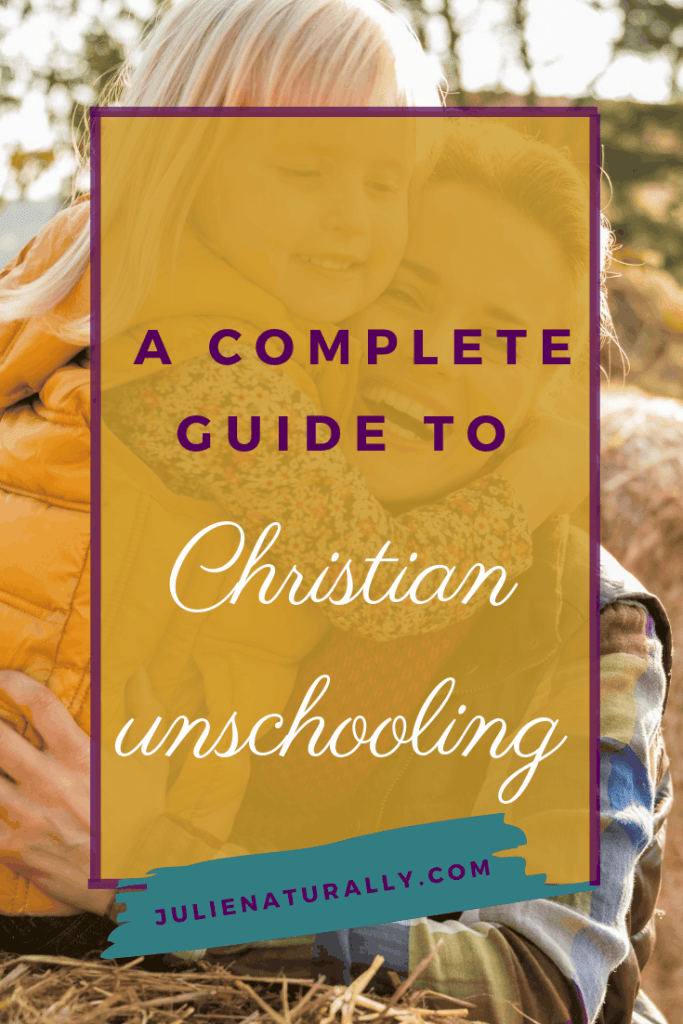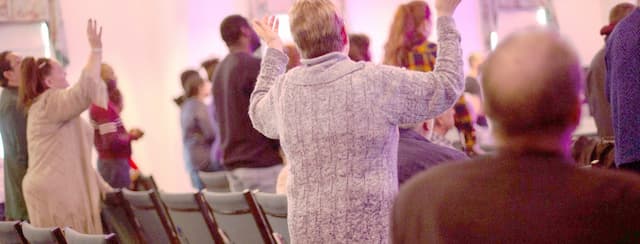A Guide to Natural Learning (or how does Christian unschooling work)?
The Christian unschooling style of homeschooling is one of the most misunderstood and even maligned styles. When you say “we are Christian unschoolers,” many people conjure up images of wild, defiant children who don’t seem to know basic things every other child knows. (This image wasn’t helped by some radical unschoolers who became the face of this style.) Granted, Christian unschooling can be done well or poorly, just like any other style of homeschooling. Sometimes, I like to use the terms “natural learning” or “self-directed” instead because they better describe what actually happens and have a better connotation. Let’s dig in to this style of homeschooling and see if we can discover something new and amazing.
Disclosure: This post contains affiliate links. That means that I provide links to great products at no cost to you and if you choose to click through, I might get a small commission that helps keep this blog running.
What is Christian unschooling, or natural learning, anyway?
A way of thinking about learning
The term “unschooling” was first coined by the late education reformer, John Holt, in 1977 and described learning that is interest-driven, child-led, natural, organic, eclectic, or self-directed. To learn more, check out How Children Fail and How Children Learn, two of his first books about his ideas for educational reform (I personally don’t recommend some of his later, more radicalized books.) Parents who read his concept associated the term with learning, not parenting. Homeschooling wasn’t a movement at that time and only a very small number of parents embraced it. No specialized homeschooling materials existed, either. Instead, parents used the library, homemade games and materials, used textbooks, and their own communities. In fact, I dare say that all of these early families engaged in some level of unschooling, even Christian unschooling.
It also means taking the “school” out of learning. School implies a prescribed and coercive way of teaching and learning that children–and often the parents, too–have little or no control over. By taking the school out of learning, we put the process of education back into the hands of the learner and those who love him–his parents, family, and Jesus Himself. Many people feel this is the best way for everyone to learn. So, a modern movement is underway to promote communities that embrace self-directed learning, whether learning centers, schools, or homeschooling.
A way of thinking about teaching
God created us to be curious, natural learners. From the moment of birth, a child learns. From the moment a child can move around, he acts on his environment in order to learn more. Children teach themselves how to crawl, walk, talk, run, jump, and a million other things. We simply encourage and interact with them, discipline them, and guide them.
Developmentally-appropriate
We know that every child is different and yet, we still like our scope and sequence charts. I regularly find questions on homeschooling boards about how to get a child to read when she isn’t interested or what should a 1st grader know. I talk a lot about this in my Christian unschooling book, God Schooling: How God Intended Children to Learn, in which I devote an entire chapter to what is developmentally appropriate for each of three age groups: kids under age 8, kids aged 8-12, and teens.
Only each individual child and God Himself know what’s next on the learning menu. We often get it wrong and sometimes cause emotional and psychological damage because of our zealousness. If we pay close attention to the child instead of the charts, we might just get it right. Christian unschooling respects developmental differences and acknowledges our teaching shortcomings.
Self-taught, except for morals
In fact, outside of morals, we cannot teach a child anything. We present her with information, maybe we even “test” what she remembers. But, these things don’t guarantee that she actually learned the material and will use it. We drill sight words, vocabulary, math facts, names of states or provinces, etc. and think that we’ve taught something.
However, think about this: How many vocabulary words do you remember from your school days? How quickly did you forget them? I bet you only remember math facts and sight words and the reason for that is you use them everyday.
When we embrace natural learning, we understand that we retain information from only one type of teaching. We retain information that we chose to pursue because it meant something to us. As adults, we only pursue learning that is relevant to our jobs, our interests, or our goals. We quickly forget everything else. Somehow, we forget that this fact pertains to children, too.
Parents must still actively teach morals
Parents are morally responsible to teach God’s Word, to disciple children, and demonstrate a living testimony of Christ’s mighty work in our lives. God commands us to do this: These commandments I give you today are to be upon your hearts. Impress them on your children. Talk about them when you sit at home and when you walk along the road, when you lie down and when you get up. Deut. 6:6-7.
Why? Folly is bound up in the heart of a child, but the rod of discipline will drive it far from him. Prov. 22:15 How will they know what sin is and their great need for a Savior if we do not teach them?
In addition, we facilitate, guide, mentor, introduce, suggest, coach, and encourage our children to learn. We want them to explore God’s story of human history and people groups, God’s creation and natural laws, his creativity and beauty, and the language of the universe that he put in place. But, we can’t force it or they may hate all these wonderful truths instead of savoring them. We need to entice them, invite them, and be life-long learners ourselves.

What Christian unschooling or natural learning is NOT
NOT unparenting
Not too long ago, a branch of unschooling called “radical unschooling” drew media attention. Critics–myself included–dubbed it unparenting, and even child neglect. The Bible says that he who doesn’t discipline his son hates him (Proverbs 13:24, Proverbs 3:12, Hebrews 7-11). Basically, radical unschooling extends the idea of child-led learning into all areas of life, not just education. This is obviously un-Biblical. A child is born a sinner and is naturally only interested in fulfilling his own selfish desires without regard for others (or even his own best interests ) unless someone teaches him otherwise. For a discussion on Christian unschooling, read HERE.
Even those who aren’t “unparenting” get confused and think that unschooling, even Christian unschooling, means that the parents don’t have to do anything. While parents may not be forcing their child to learn, they still actively participate in the education process.
We can’t sit back and do nothing. To be successful with this style of homeschooling, you can’t sit around reading cozy romance novels and watching sitcoms. You can’t spend your weekends shopping and playing video games. Parents must be actively learning and doing. You can’t ask your children to do something that you aren’t doing yourself.
It IS relationship-based
This means that we are curious, too. We model what we want in our kids. We watch documentaries. If there’s a new exhibit at the museum, we go see it. When summer festival season starts, we participate in the Latin Festival or the Jazz Festival. We take our kids to war re-enactments, outdoor plays, concerts in the park, the city zoo. And, we occasionally take classes that interest us. Our enthusiasm tends to rub off on our kids. When we get out and do stuff, they discover new interests, too. When we invite them to fix things, cook things, build things, create things with us, not only do we build relationship. We also introduce them to skills and passions they may not have otherwise explored.
Using questions
We also actively facilitate learning by asking our children questions such as, “What are you curious about? What would you like to learn about next?” Or, making suggestions:
- “Well, if you want to start a business, you will need to look into these resources.”
- “Why don’t you give this a try? It’s kind of like this other thing you like, so you might like this, too.”
- “You probably should brush up on these skills if you want to do that.”
- “Hey! Take a look at this. This looks interesting. Maybe we could read it together and try some of the activities.”
- “To be an informed citizen, you should know this.”
Unschooling doesn’t mean we sit back and wait for our kids to come to us with questions. And, sometimes, we need to strongly suggest because we know they need it and they don’t.
And, we still need to be parents and set limits. Requiring chores, limiting screen time, setting a bedtime and other related responsibilities enforce your authority and set boundaries. Remember, unschooling doesn’t mean unparenting. You have wisdom. They do not.
How does Christian unschooling look on a day-to-day basis?
Ah, yes. The million dollar question that everyone asks. “That sounds great. How do I do it?” And, of course, the answer is always, “Well, it looks different for everyone. There is no one way to unschool.”
All of that is true. But, as I mentioned above, successful unschooling depends on a few factors.
4 factors necessary for success
- Parents must be life-long learners themselves.
- They must be actively involved with their children and their children’s interests.
- Parents must set limits on non-productive activities, such as video games and television.
- And, parents must be willing to lovingly seek collaborative cooperation for learning that the parent knows the child needs but that the child isn’t interested in pursuing. (Personal finance comes to mind….)
If we embrace these four principles, our daily lives will naturally fill up with productive learning activities. Some days might be more active than others, but life naturally flows in rhythms. Setting up a schedule helps, especially when you have many children who might need assistance. But, you would fill such a schedule with activities your family chose, not what a curriculum provider chose.
Some examples
You might spend one morning at the library and then spend the rest of the day curled up on the couch reading some of those books. Perhaps one of them inspires a craft, a baking project, or a sudden burst of song.
Maybe the next day entails driving each of your kids to a different class–violin, Tae Kwon Do, art. In the afternoon, you visit friends.
The following day, you volunteer for a few hours at the food bank and then watch some videos about ancient weaponry when you arrive home.
Just as every homeschool is a bit different from the other because every family is different, it’s the same with unschooling. Every family looks different, but successful unschoolers all have those four characteristics. Start there.
Materials
You might be surprised that unschoolers do use textbooks or even curriculum at times. But, they use these materials differently. They use them by choice, not by requirement, and they give themselves permission to use only parts of it as they see fit. I have used curriculum in this way because it provided the best learning materials for that topic.
So, unschoolers might use textbooks, eclectic curriculum, online classes, traditional classes, library books, videos, and all the same sorts of media that any other homeschooler would.
When Christian unschooling doesn’t work
Don’t follow all 4 factors
As I mentioned above, four distinct factors determine whether or not we will be successful Christian unschoolers. If we are unwilling to embrace all of those factors (or, we can’t), then we will likely be disappointed. The biggest complaint I hear is, “But, my son doesn’t want to do anything. He just plays on _________ all day.” While we all need downtime, no one needs downtime all the time. Please see factors #3 and #4 above if this is you.
I have also talked with families that set limits on media, but never went to the library, museum free days, free concerts in the park, or any other activity. Now, unschooling doesn’t depend on going places all the time, but rather depends on productive learning activities whether inside or outside the home. Sometimes, it’s hard to get out, even for free stuff. But, in those cases, we need to bring stuff in. Supervised computer access can provide some needed mental stimulation, but hands-on provides the best. If you can’t get out of the house, don’t want to or can’t bring in learning opportunities, and your unique living situation (farming, road schooling) doesn’t provide opportunities, maybe unschooling isn’t for you.
Special learning needs
Another situation in which unschooling may not work is when the child has serious learning disabilities and mental challenges. These children thrive in a challenging, structured learning environment with very specific, proven, learning models and tools. These include children with Down’s syndrome and sometimes autism.
Both parents work full-time and co-homeschool
This situation requires a great deal of organization and synchronization. Unschooling probably won’t work in this situation because of the haphazard and random way that unschooling naturally happens. It’s difficult to monitor learning and engage at the level required for this style to work. If both parents work and homeschool, choosing a suitable, “grab-and-go” curriculum probably would be best.
Unschooling on a continuum
Most homeschoolers engage in some level of unschooling. For some, it might be interest-led/delight-directed unit studies or relaxed Charlotte Mason. For others, it might be “we do curriculum for language arts and math and unschool everything else.” Incorporating some level of passion-driven learning into your homeschool helps you discover your child’s unique, God-given gifts. It validates who he is and respects him as a person.
Need some help tracking all that natural learning? Check out my planners. I have three different ones to meet slightly different needs. Our Unschooling Year is for the project-based, goals-driven, self-directed family. If you use a bit of curriculum and a bit of unschooling, you might like the Relaxed Planner. And finally, we have a planner for delight-directed families who are in between.
For full support in implementing unschooling in your home, check out the “How to Unschool” Success Bundle. It includes two print books, two videos, two planners, and bonus content, plus a full email support series to guide through implementing the material. Check it out!
Looking for some additional resources? Check out:
God Schooling: How God Intended Children to Learn by Julie Polanco
The Relaxed Home School by Dr. Mary Hood
Unschooling Rules by Clark Aldrich





